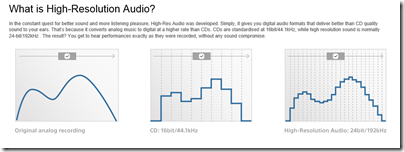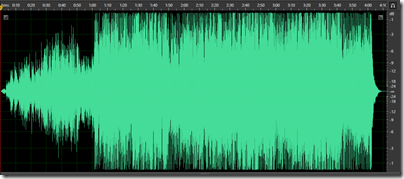One day you will be able to buy a Windows device and have a smooth and delightful experience getting started.
To be fair, something like a Surface tablet can give offer a reasonable experience if you are lucky.
Not so a Toshiba Portege Z930 ultrabook – at least, not if you buy one with Windows 7 pre-installed, and want to run Windows 8, as a contact of mine has just done.
Why would you not buy one with Windows 8 pre-installed instead? With hindsight, that is what I would recommend; but since it says on the box, “This system is pre-installed with Windows 7 Pro software and also comes with a license and media for Windows 8 Pro software,” he did not think it much mattered.
The problem: The Z930 has no optical drive, but Windows 8 is supplied in the form of two recovery DVDs.
I thought that was pretty silly, but luckily I know all the tricks about creating a bootable USB drive from a DVD. I even spotted the note in the box that instructs you to go into the BIOS and change it from CSM Boot to UEFI Boot.
No go. It would not boot from the USB drive in UEFI mode, and in CSM mode (which is also meant to work for Windows 8, with a few limitations) it boots, starts a Toshiba recovery wizard, and then bombs out.
I spoke to support. The first thing they told me, unprompted, was to make Windows 7 recovery disks, since not everyone likes Windows 8.
Next, the support guy was surprised that a model without a DVD drive ships with DVDs. Had the machine been tampered with? Then he looked it up, and admitted that they are all like that.
After a little more investigation, he said there is no way it will work from a bootable USB drive, because it is coded to look for the DVD. The only way is to buy an external DVD drive and attach it via USB.
The behaviour began to make sense to me. The scripts must be hard-coded to look on the optical drive for the files. I’d guess you can fix it by modifying the scripts if you know where to look, but life is too short and I went out and bought a DVD drive.
Smooth after that? Not brilliant. Recover Windows 8, go to Store for Windows 8.1, remember that you have to apply updates before it appears, apply 80 Windows updates, remove McAfee trialware and a few other unwanted applications, back to Store, do large Windows 8.1 download, and done.
In an era where usability is king, it is remarkable that Toshiba thinks that shipping DVDs with a computer that cannot read them is a smart thing to do. That said, I have a few more observations.
- If you got a product key for Windows 8 and could download the media from Microsoft, that would work. But OEM Windows 8 is now pre-pidded so you don’t get a key.
- If Microsoft were not still making so much money from businesses paying for Windows licenses, it could give Windows away and offer users a more Apple-like upgrade experience.
- If Microsoft had not come out with a Windows upgrade which many of its customers do not like, companies like Toshiba would not be selling so many laptops with Windows 7 pre-installed.
As for the Z930, it is a lovely light, fast laptop if you do not need touch. But when will Windows OEMs, and to some extent Microsoft itself, learn the importance of out-of-the-box user experience?

























